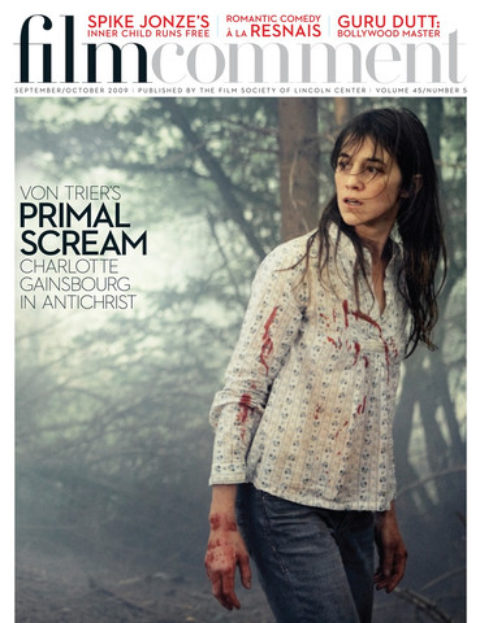
Is Anna Wintour a malicious, vindictive, power-crazed dragon lady or merely, as one of her supporters claims, just really, really busy? Whatever the case, the imposing editor of Vogue is one of the most powerful women in the word, thereby assuring that she frequently comes under vicious, often misogynistic public scrutiny. Given her supreme prominence in the image industry, obsessive Wintour-watching is inevitable, and while her gender no doubt inflects the tone of the chatter, fashion kingpins like Karl Lagerfeld and Marc Jacobs are just as frequent tabloid and blog fodder. Yet Wintour is in every way a special case, massively influential on a global scale, a contemporary tastemaker of unrivaled impact, mercilessly controlling of her empire, and, let’s face it, a world-class weirdo. My closest encounter with Wintour transpired at a press screening of Quantum of Solace, where I was startled to watch her take a seat in front of me, surrounded by her entourage but without her trademark sunglasses—Anna has eyes?!—only to then see her don giant black shades as soon as the movie started. Cuz you know, them shits is bright.
Wintour reveals her eyes, and the tiniest glimpse of her inner life, to the camera in The September Issue, a documentary by R.J. Cutler about the production of the gigantic 2007 fall issue of Vogue. Cutler and crew spent eight months in the hallowed Condé Nast offices, amassing some 300 hours of footage now compressed to feature length. The result is hugely entertaining, as no movie featuring André Leon Talley could fail to be: witnessing Wintour’s majordomo lug tens of thousands of dollars worth of Louis Vuitton accessories to the tennis court while pontificating on the totality of his lifestyle, bitches, offers a very special moment in the history of spectacular faggotry.

Surrounded by such flaming creatures, all furiously at work on fall’s fashion bible as well as their various ego trips, agendas, and immaculate outfits, it’s no wonder that Cutler gets a little befuddled. The September Issue is a misshapen, mix-and-match affair, an ill-fitting ensemble of individually compelling pieces. There’s the story of Anna, of course, which isn’t quite told here and likely never will be: the illusion of access is deeply compromised by Wintour’s hypersensitivity to press. There isn’t a misspoken syllable or stray hair caught by The September Issue, and if it comes off as “surprisingly” sympathetic to Wintour, well, duh. The movie is less compelling as an unguarded look than as an implicit act of propaganda. It’s not what we get to see of Wintour at home and work, but what Wintour wants us to see that constitutes the secret drama of the film.
The other big story here is the production of the magazine itself, a wildly elaborate and expensive ordeal entailing countless intriguing displays of taste, money, power, reputation, and creative turf war. Like Beverly Hills Chihuahua, The September Issue is a late-arriving artifact of pre-recession frivolity and, like the lugubrious and delusional State of Play, an example of the ascendant subgenre of nostalgia for printed matter. Cutler is too distracted (starstruck?) by his milieu to carry through on these two main narratives, but he does work in a splendid subplot in the relationship of Wintour to Grace Coddington, Vogue’s invaluable, universally revered creative director. A former model, Coddington arrived at Vogue at the same time as Wintour, and their professional dynamic bears all the resignation, loyalty, and subtle give-and-take of a 20-year marriage. Coddington’s endless battle to salvage her editorial work from the harsh red pen of her mercurial editrix makes for a brittle comedy of manners—and another example of The September Issue’s embarrassment of riches and inability to cash in on them.








